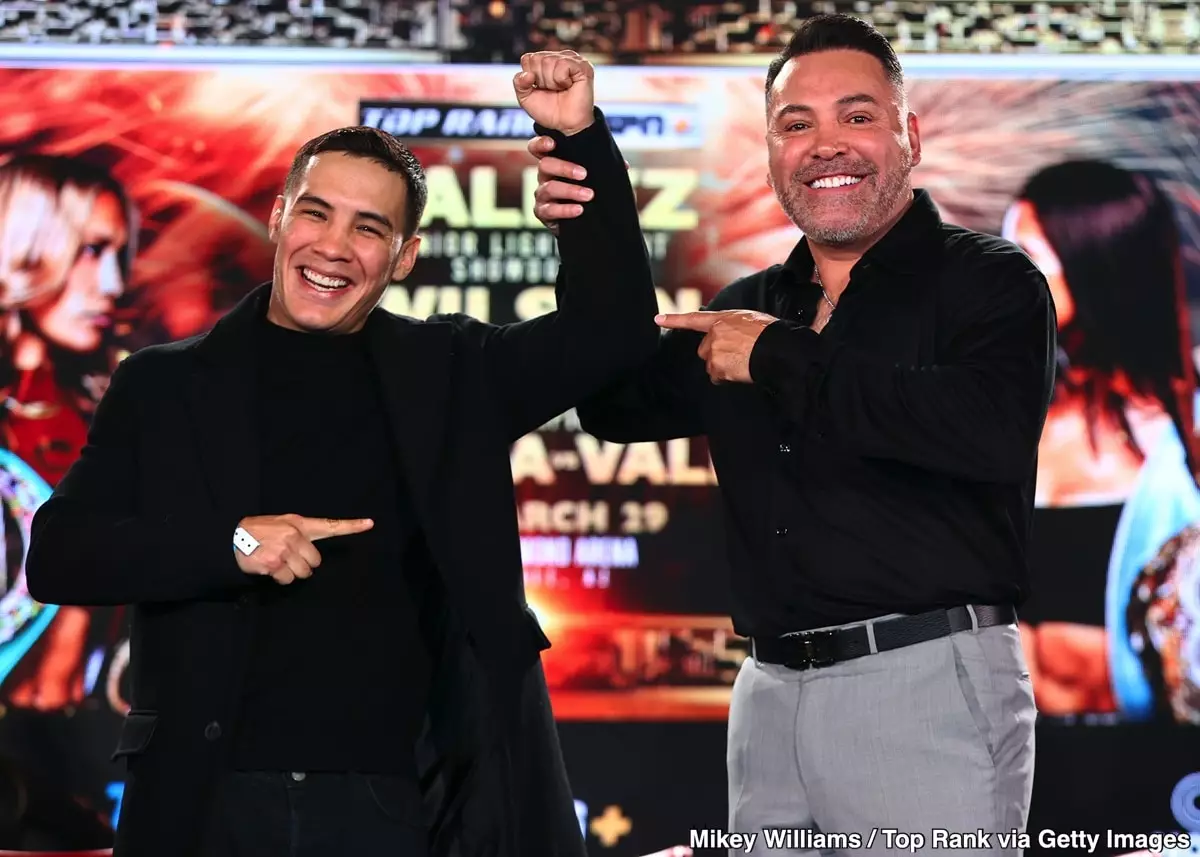The boxing world has always been rife with rivalries, and the recent sparring match of words between Oscar De La Hoya and Eddie Hearn has injected a fresh dose of excitement. During his latest installment of ‘Clap Back Thursday,’ De La Hoya wasted no time in criticizing Hearn after a notable upset in the boxing ring. The scene was set at Wembley Stadium, where Anthony Joshua, one of Hearn’s premier fighters, suffered a shocking defeat at the hands of underdog Daniel Dubois. With a fallout this significant, it was almost expected that De La Hoya would seize the moment to deride Hearn and his promotions.
De La Hoya’s sharp jabs at Hearn contained both critique and a hint of glee over Joshua’s loss. The Golden Boy stated bluntly that Joshua’s defeat was another misstep for Hearn, showcasing a record of losses against competitor Frank Warren. Yet, it would be remiss to reduce the complexity of Joshua’s career to mere promoter accountability. It’s essential to recognize that boxing is unpredictable; surprising defeats are part of the sport. Many analysts and fans expected Joshua to prevail, yet the match concluded in a way that no one could have easily foreseen.
De La Hoya’s assertions that Hearn “fumbled” Joshua’s career invite skepticism. For one, the financial success that Joshua has achieved, arguably bolstered by Hearn’s promotional capabilities, casts doubt on the notion that Joshua’s career trajectory is failing simply due to Hearn’s decisions. The monetary implications of such a highly publicized name in boxing deserve acknowledgment, even when the fighter experiences a stumble in the ring.
De La Hoya and Hearn’s ongoing rivalry transcends mere professional competition; it reveals personal animosity as well. Despite De La Hoya’s public ridicule, Hearn has indicated that, in face-to-face encounters, their interactions are surprisingly cordial. This duality raises questions about the authenticity of their rivalry. Is it merely theater for media attention, or is there genuine animosity lurking beneath the surface?
In many ways, both promoters become architects of their own narratives. De La Hoya capitalizes on Hearn’s misfortunes to bolster his own brand while Hearn must now navigate the waters of reestablishing Joshua’s status in the boxing arena. The future path for both promoters illustrates the cutthroat nature of sports promotion, where one must constantly stay relevant and in the limelight.
One vital conclusion is that Hearn faces a daunting task ahead: rebuilding Joshua’s image and career. Joshua’s fans eagerly await the next moves, keenly aware that overcoming a setback can often make or break an athlete. As De La Hoya closely observes from the sidelines, the relationships in boxing may oscillate, but the competition remains fierce.
The feud between De La Hoya and Hearn reflects broader themes of rivalry, accountability, and the intricacies of a fighter’s journey. While De La Hoya revels in his opportunity to critique, the narrative around Joshua will evolve as Hearn strives to turn this setback into a comeback. Fans and pundits alike will be watching intently, as every misstep will surely be scrutinized under the ever-watchful eye of De La Hoya.

